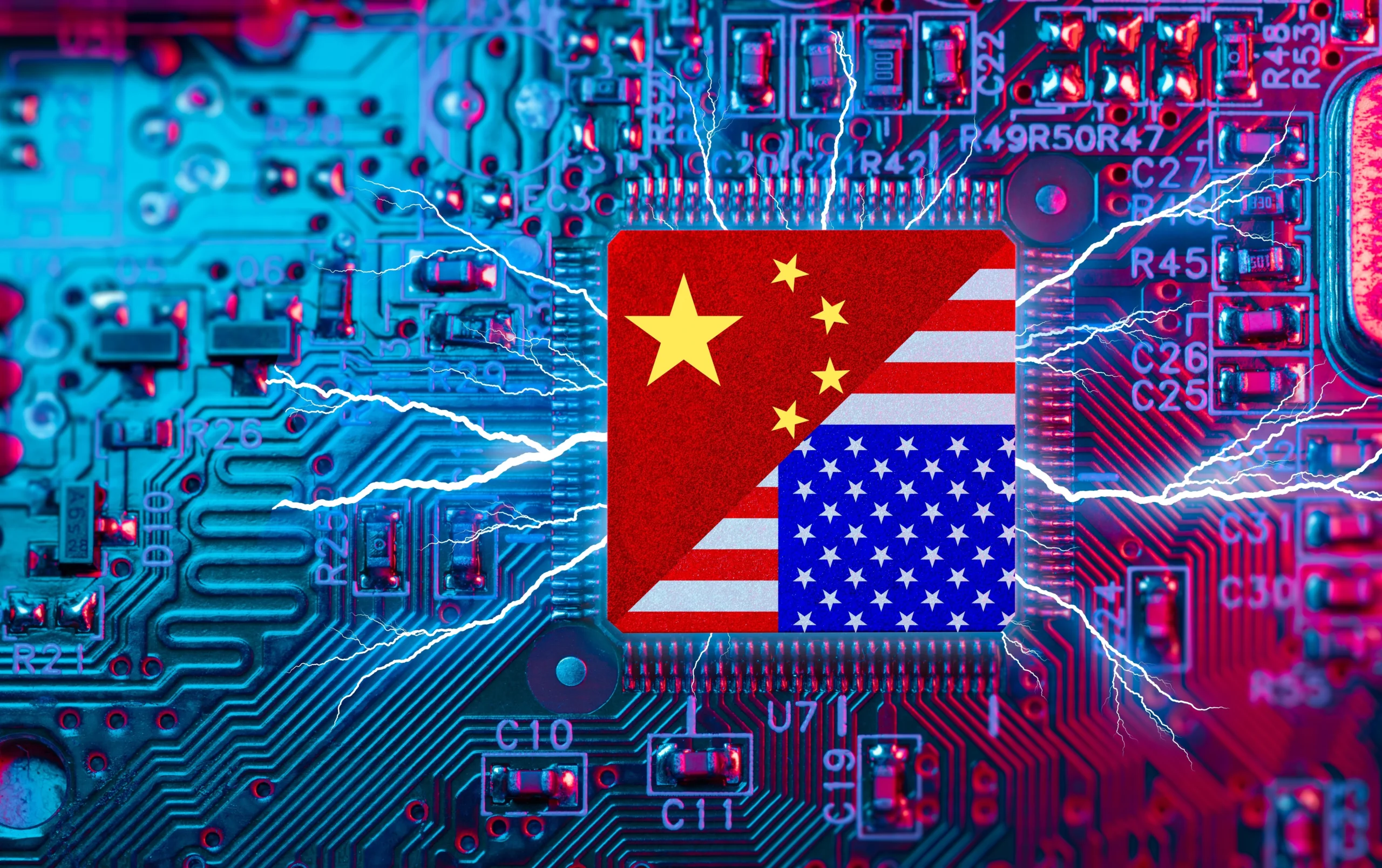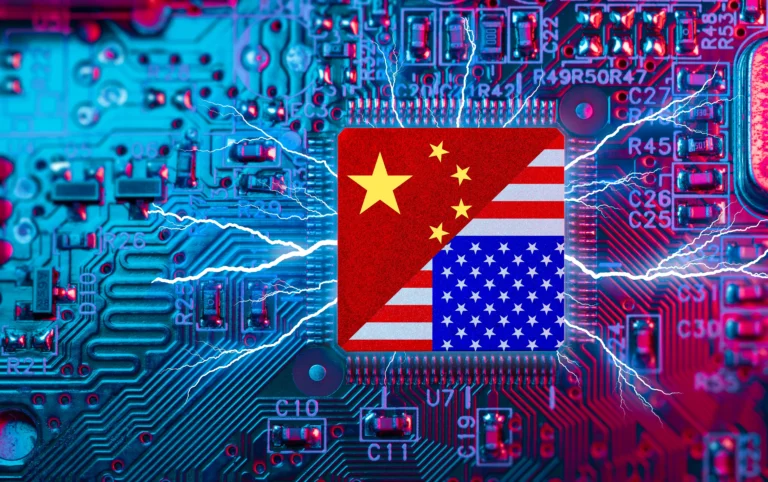Hardy Airtificial Intelligence
Hardy News provides in-depth coverage of the latest trends in technology and innovation, focusing on advancements in Artificial Intelligence, machine learning breakthroughs, practical applications, and discussions on ethics in the digital era.

Our Top Picks
การกอดใบหน้าแสดงให้เห็นว่ามาตราส่วนเวลาทดสอบช่วยให้โมเดลภาษาขนาดเล็กเจาะลึกเหนือน้ำหนักได้อย่างไร
steve smith 10 months ago
In recent years, language models have become a cornerstone of artificial intelligence, powering a wide range of applications, from chatbots...
Google Chrome ใช้ AI เพื่อวิเคราะห์หน้าในฟีเจอร์ตรวจจับการหลอกลวงใหม่
steve smith 10 months ago
GenCast AI ของ Google สร้างความโดดเด่นให้กับนักพยากรณ์อากาศหน้าใหม่ที่ทรงพลัง: อธิบาย
steve smith 10 months ago
NeurIPS ‘AI Olympics’ เผชิญกับอุปสรรคใหม่ในแคนาดาท่ามกลางการแข่งขันเทคโนโลยีระหว่างสหรัฐฯ และจีน
บริษัทจีนซึ่งพบชิปในโปรเซสเซอร์ AI ของ Huawei เผชิญกับการลงโทษจากสหรัฐฯ
OpenAI ประกาศโมเดล O3 ใหม่: ก้าวกระโดดในเทคโนโลยี AI
Latest Guide
บริษัทจีนซึ่งพบชิปในโปรเซสเซอร์ AI ของ Huawei เผชิญกับการลงโทษจากสหรัฐฯ
In a significant development in the ongoing global tech and trade tensions, a Chinese semiconductor firm whose chip was discovered in Huawei’s advanced AI processor is now facing imminent punitive actions by the United States. This latest move underscores the intensifying rivalry between the two nations in the realms of technology, national security, and intellectual property. The chip in question, which was found in Huawei’s AI processor, has triggered a series of escalating events, with the U.S. government targeting the Chinese firm for allegedly violating international trade sanctions and technology export restrictions. The decision highlights the ongoing pressure the U.S. is exerting on Chinese tech companies, particularly those linked to Huawei, as part of a broader strategy to curb China’s growing influence in global technology markets. Background of the Situation The Chinese semiconductor company, which remains unnamed at this point, is accused of providing a key component that was integrated into Huawei’s AI processors used in the company’s 5G networks, smartphones, and artificial intelligence (AI) systems. These chips were found to be critical in powering some of Huawei’s most advanced hardware, further strengthening the company’s ability to compete on the global stage. The discovery of the chip sparked an investigation by U.S. authorities, who have been wary of Huawei’s expansion due to national security concerns. Washington has long accused Huawei of being a potential security threat, alleging that the company’s technology could be used by the Chinese government for espionage—a claim that Huawei has consistently denied. As a result, sanctions and trade restrictions have been placed on Huawei, limiting its access to critical technology, including semiconductors from U.S. firms. What This Means for the Chinese Firm The firm in question, which is believed to be a key supplier of chips for Huawei, is now facing serious repercussions. According to sources, the U.S. government is planning to impose trade sanctions on the company, further limiting its access to U.S. technology, which could severely hamper its operations. The sanctions could include restrictions on purchasing critical equipment, as well as limitations on the firm’s ability to conduct business with American companies. This punishment is part of a broader U.S. effort to isolate Chinese companies from access to advanced technology that is deemed to be sensitive or potentially harmful to U.S. national interests. This move also aims to prevent Chinese firms from gaining access to cutting-edge technologies in semiconductors, AI, and telecommunications that could fuel China’s technological advancements and contribute to its rise as a global tech leader. The Role of Huawei in the Tensions Huawei, the world’s largest telecommunications equipment manufacturer, has long been at the center of a global battle over technology, national security, and economic dominance. The company has been subject to severe sanctions by the U.S. government, which has restricted Huawei’s access to crucial technologies such as Google’s Android operating system, high-performance semiconductors, and key network equipment. Huawei has repeatedly denied the allegations of espionage, maintaining that its business is independent of the Chinese government. Despite the sanctions, Huawei has continued to innovate and advance in areas such as 5G technology, AI, and cloud computing. However, the sanctions have made it increasingly difficult for the company to source the critical components it needs, particularly in the field of semiconductors. In response to the U.S. sanctions, Huawei has sought to develop its own supply chain for essential components, including AI chips. The discovery of the Chinese firm’s chip in Huawei’s AI processor highlights the ongoing efforts by the company to secure alternatives to U.S. suppliers. However, these efforts have now drawn the attention of U.S. authorities, putting additional pressure on Huawei and its partners. The U.S. Strategy to Curb China’s Technological Advancement The U.S. government’s decision to target this Chinese semiconductor firm is part of its broader strategy to limit China’s technological rise. By restricting access to advanced technologies such as semiconductors and AI, the U.S. aims to stifle China’s ambitions in becoming a leader in these cutting-edge fields. The sanctions imposed on Huawei, as well as on companies like the Chinese chip manufacturer, are part of a larger campaign to protect U.S. intellectual property and maintain its technological edge over China. The U.S. sees technological supremacy as a key element of global power. Semiconductors, which are essential for everything from smartphones and computers to military systems and AI, are a critical part of this equation. The U.S. has invested heavily in its own semiconductor industry and has placed great importance on maintaining control over the most advanced chip technologies. As China moves closer to self-sufficiency in this area, the U.S. is working to prevent any breakthroughs that could challenge its position. Impact on the Global Tech Industry The latest punishment could have significant implications for the global tech ecosystem. Semiconductor manufacturers around the world are closely monitoring these developments, as they could affect supply chains and the availability of critical components. The U.S. sanctions could lead to further disruption in the global supply of chips, as companies look to diversify their suppliers and reduce reliance on Chinese firms. Moreover, the ongoing U.S.-China trade tensions are likely to spur more countries to re-evaluate their own relationships with Chinese tech companies. As many nations are caught in the middle of this geopolitical struggle, the tech industry is facing a period of uncertainty and realignment. Companies with ties to both the U.S. and China may be forced to make difficult decisions about where to source their technology and how to comply with increasingly complex regulations. Looking Ahead: The Future of U.S.-China Relations in Tech The punishment of the Chinese semiconductor firm is just the latest chapter in the U.S.-China tech war, a conflict that shows no signs of abating. As both countries continue to battle for supremacy in the AI, semiconductor, and 5G industries, the global tech landscape is poised for significant shifts. For the Chinese firm in question, the punishment could prove to be a major blow, impacting its ability to compete on the global stage. However, it could also spur
Latest Posts
The AI Industry's Scaling Obsession Is Headed for a Cliff
Huge AI infrastructure deals assume that algorithms will keep improving with scale. They may not.
Published: 24 minutes ago
What Is Google One? A Breakdown of Plans, Pricing, and Included Services
If you use Google’s apps and AI, it’s worth looking at this all-inclusive service. We break down the plans and how much they cost.
Published: 8 hours ago
When Face Recognition Doesn’t Know Your Face Is a Face
An estimated 100 million people live with facial differences. As face recognition tech becomes widespread, some say they’re getting blocked from accessing essential systems and services.
Published: 9 hours ago
‘Sovereign AI’ Has Become a New Front in the US-China Tech War
OpenAI has announced “AI sovereignty" partnerships with governments around the world, but can proprietary models compete with Beijing’s open source offerings?
Published: 1 day ago
WIRED Roundup: Are We In An AI Bubble?
In this episode of Uncanny Valley, we talk about one author's journey to flee the US, social media surveillance, chatbots and the world of AI, and conspiracy theories for an autism cure.
Published: 5 days ago
Meta Tells Its Metaverse Workers to Use AI to ‘Go 5X Faster’
Mark Zuckerberg's metaverse chief is urging employees to adopt AI across every workflow as part of a broader shift inside the company.
Published: 5 days ago
The AI Slur ‘Clanker’ Has Become a Cover for Racist TikTok Skits
The online trend takes a comedic approach to spreading anti-AI messaging, but some creators are using racist references to make their point.
Published: 6 days ago
Fans Call on Taylor Swift to ‘Do Better’ After Accusations of Using AI for Promo Videos
A scavenger hunt campaign to promote Taylor Swift’s new album, The Life of a Showgirl, resulted in a viral #SwiftiesAgainstAI campaign.
Published: 7 days ago
This Startup Wants to Spark a US DeepSeek Moment
With the US falling behind on open source models, one startup has a bold idea for democratizing AI: let anyone run reinforcement learning.
Published: 7 days ago
OpenAI Sneezes, and Software Firms Catch a Cold
OpenAI revealed last week the custom AI tools it uses internally. The news sent some software companies into turmoil.
Published: 1 week ago


























